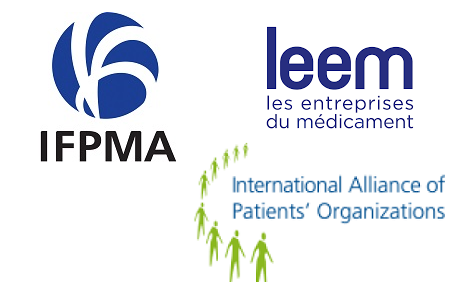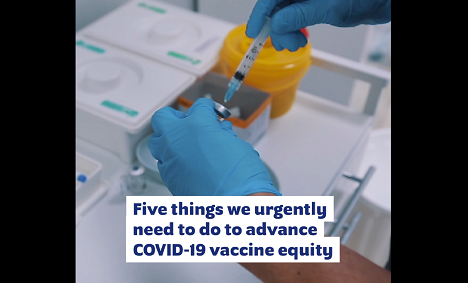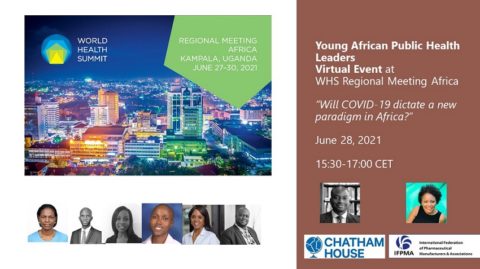24 August 2021 – The International Federation of Pharmaceutical Manufacturers and Associations (IFPMA) thanks the WHO AFRO for this opportunity to share a statement at this 71st session of the WHO Regional meeting.
IFPMA represents leading research-based biopharmaceutical and vaccine companies and national and regional industry associations in Africa and worldwide.
IFPMA congratulates Dr Moeti and her team at WHO AFRO for their leadership and coordination during the pandemic and their commitment to partner with stakeholders to achieve vaccine equity
From the onset of the pandemic, IFPMA has been a committed founding partner of the ACT-Accelerator, which promotes equitable and fair access to vaccines. The therapeutics, diagnostics, and vaccines that have been developed and manufactured are for those who need them most based on the collective understanding that no one should be left behind and no one is safe until everyone is safe.
IFPMA and its members will continue to support efforts by industry, governments, and all stakeholders to strengthen COVAX’s response and work with WHO AFRO, African CDC, and African Union to rapidly expand fair and equitable access to safe and effective COVID vaccines, diagnostics, and treatments across Africa.
In May, IFPMA announced Five Steps to urgently address global vaccine inequity. These include increased dose sharing, optimized production, removal of trade restrictions, infrastructure and resources to support country readiness, and further innovation.
IFPMA also supports the objectives of increasing local production of vaccines on the African continent, and we recognize the importance of voluntary technology transfer collaborations to meet this goal.
IFPMA and member companies will continue to work with countries to administer all the doses allocated to them and limit the risk of dose wastage. Likewise, IFPMA will continue to work on countering misinformation, misunderstanding, and disinformation on vaccines, which have led to vaccine hesitancy and the tragic destruction of unused vaccines on the continent.
IFPMA welcomes WHO AFRO’s commitment to work with the private sector as a partner; to address policies that enable access to vaccines and treatments for those in need, such as review of national stockpiling; and to foster an environment that encourages innovation, research, and development. The industry supports Universal Health Coverage (UHC) through collaborations and partnerships with governments, NGOs, and private sector entities to strengthen healthcare systems, ensure the quality and integrity of the pharmaceutical supply chain, train healthcare workers, and explore innovative approaches to financing UHC.
UHC will only be achieved if we leverage learnings from the pandemic and drive further innovation that supports the necessary response to this and future pandemics. For the global health community, it is imperative to design and identify optimal healthcare models, tailored to the needs of each country instead of “one-size-fits-all” solutions that potentially limit growth. A strong healthcare economy based on a self-sustaining model consistent with national economic development goals is essential to ensure a sustainable healthcare system independent from development assistance.
We stand ready to work hand-in-hand with governments to support new healthcare financing and delivery models adaptable to local conditions. IFPMA members are equally committed to collaborating closely with national regulatory agencies, suppliers, distributors, communities, and other global health stakeholders to advance access to existing medicines and vaccines.
Finally, IFPMA welcomes the news of 15 countries ratifying the treaty to establish the Africa Medicines Agency (AMA). The AMA will be a crucial force to enhance regulatory oversight and facilitate access to safe and affordable medicines across the continent. We stand ready to support the AMA as a founding member of the recently launched African Medicines Agency Treaty Alliance (AMATA).

















